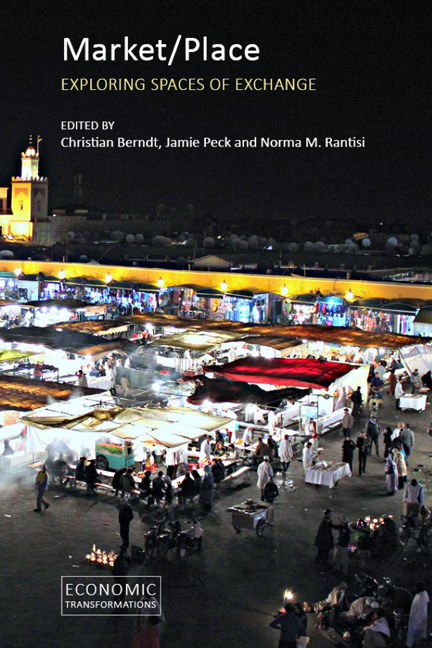7 - Geographically contested and variegated marketization
Published online by Cambridge University Press: 23 December 2023
Summary
INTRODUCTION
Real-world markets are institutions: humanly devised rules and constraints that structure interactions. Karl Polanyi's (1957) insights of “the economy as instituted process” and “always embedded market economy” have served as the leitmotif of a comprehensive “market-institutional” research programme, offering great potential for an interdisciplinary comparative perspective in analysing real-world market systems and their variation across time and space (Hollingsworth & Boyer 1997; Block 2003; Peck 2005a, 2013a; Ebner & Beck 2008; Block & Somers 2014; Vogel 2018).
Market fundamentalists share a worldview of universal commodification and the triumph of the “free market” that has never actually existed. Even with the rising hegemony of neoliberalism, enduring spatial variations of economic and institutional patterns and performances at all geographic scales remain the rule. Polanyi's (2001 [1944]) conceptualizations of “fictitious commodity” and “double movement” have highlighted the political and contested nature of commodification and marketization. Polanyi (1977b: 6) explicitly protests against the “economistic fallacy” – the logical error of “equating the human economy in general with its market form”. To quote Polanyi:
The human economy … is embedded and enmeshed in institutions, economic and noneconomic. The inclusion of the noneconomic is vital. For religion or government may be as important for the structure and functioning of the economy as monetary institutions or the availability of tool and machines … The study of the shifting place occupied by the economy in society is therefore no other than the study of the manner in which the economic process is instituted at different times and places.
(Polanyi 1957: 250)By rejecting the analytical autonomy of the economic sphere, Polanyi's thesis directly challenges the economic essentialism of both market liberals on the right and orthodox Marxists on the left (Block 2003). Insisting on viewing markets from the concrete complexity of social life, Polanyi has built the foundation for a geographic market-institutional approach, foregrounding the spatial variation of market-shaping institutions and hybrid forms of the actually existing economy (Peck 2005a, 2013a).
- Type
- Chapter
- Information
- Market/PlaceExploring Spaces of Exchange, pp. 119 - 134Publisher: Agenda PublishingPrint publication year: 2020

